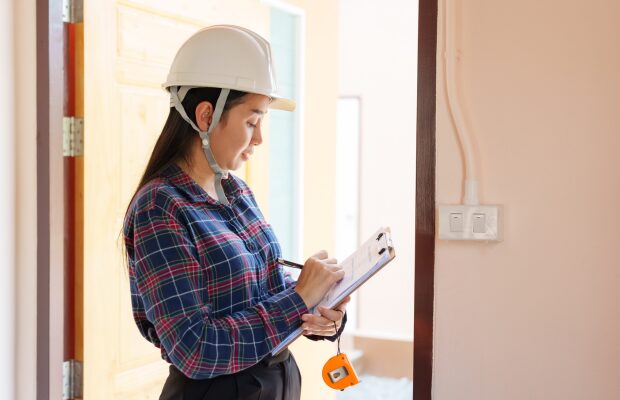Preparing your finances ahead of moving has always been important.
But with the increasing cost of living and other economic changes, getting your financial affairs in good order before you move really is key.
In this guide, we explain all the financial factors you need to consider when moving alongside offer plenty of useful guidance on how to do it.
Costs you can expect when moving home
It’s estimated the average person spends just under £10,000 when moving home.
A lot of those costs need to be paid up front, too.
Upfront costs when moving
1. Stamp duty
If you’re an existing or previous homeowner buying a property for more than £250,000, you’ll need to pay stamp duty.
If you’re a first-time buyer, full stamp duty relief is available on up to £425,000 of your property’s purchase price.
Your stamp duty bill is usually paid by your solicitor when they settle your finances after you have the keys to your new home.
But as it’s a large potential cost, you’ll need to factor it into your budget before you start searching for a property to buy.
2. Deposit
Whether you’re a first-time buyer or an experienced home mover, you’ll need to contribute a deposit when buying your property.
And it’s likely to be one of the biggest single up-front costs you face.
Your deposit will need to be at least 5% of your property’s purchase price, but the larger your deposit, the more attractive your mortgage terms are likely to be.
When you buy a new home, your deposit acts as a security on the day you exchange contracts with your seller and also as a deposit against your mortgage – basically the portion of your home you’re buying outright.
If you’re an existing homeowner and are selling your current property, it’s likely that any equity you have in that property will act as your deposit on your next home.
But this money won’t be available until you complete.
So, you may either need to find cash to cover your 10% security deposit at exchange of contracts or your solicitor may use your buyer’s deposit as this security.
If you’re buying for the first time, your saved deposit will be used as security at exchange and then transferred to the seller when you complete.
3. Valuation fee
If you’re buying your next home with a mortgage, you’ll need to pay a fee towards your lender’s valuation of that property.
Lenders do this to ensure the property is worth at least the amount of the mortgage you’re borrowing.
Fees for lender valuations are often between £150 and £1,500, although some lenders offer them for free.
If there is a fee to pay for this, you’ll need to settle it with your lender up front.
4. Other mortgage fees
When you apply for a mortgage, your lender may charge you a booking or arrangement fee.
This covers their work in setting up your mortgage once your application has been approved.
Arrangement fees can often be added to your mortgage loan if you wish, rather than paid up front.
However, if you do this, you’ll pay interest on the amount, so it’s usually best to pay up front if you’re able to.
The most attractive mortgage rates often come with the highest arrangement fees, which can sometimes be up to £2,000.
5. Survey fees
Having a survey carried out is a great way to find out more about the condition of the property you want to buy before you commit to buying it.
Fees for surveys vary depending on the type of survey you book and the size of the property.
However, you can expect to pay between £200 and £700 and this fee is payable up front.
6. Solicitor or conveyancing fees
Solicitor fees are usually made up of a main fee for your solicitor’s work and various disbursements, which include things like searches and money laundering checks.
Your solicitor or conveyancer may ask for a part payment up front to cover these disbursements, with your remaining fee due and collected by them once you’ve completed.
7. Buildings insurance
Most mortgage lenders will insist you have a buildings insurance policy in place on your new home.
And this is often required at the point you exchange contracts, as this is when you’re legally bound to your purchase.
Building insurance policies vary hugely depending on your property’s type, condition, and location, so always shop around for a good deal.
But remember to ensure your policy provides adequate cover, too.
8. Removals costs
While many removal companies may be happy to accept payment after you’ve moved, some will require an up-front payment.
So, factor this into your budget early.
Removal costs will depend on how far you’re moving from your existing home and the number of things you have that need to be moved.
Companies may also take difficult access into account when pricing up your move.
Costs payable after you’ve moved
1. Estate agent fees
When selling, your estate agent’s commission will be due when your sale completes.
Solicitors and conveyancers usually arrange this payment when they distribute the proceeds of sales, but you can also pay from your own funds if you wish.
2. Ongoing running costs
Ongoing costs that come with running a property are often among the biggest outgoings you’ll have once you’ve settled into your new home.
These ongoing costs will likely include:
- Gas and electricity
- Sewerage
- Water
- Broadband, TV package and phone
You’ll also need to pay council tax and this will vary depending on which band your property sits in.
3. Leasehold costs
You may have to pay some additional costs if you’ve purchased a leasehold property like a flat or apartment.
This may include a ground rent to the building’s freeholder, as well as a service charge that covers maintenance of common areas.
4. Mail redirection
Mail redirection can be a great way to ensure all your post reaches your new property while you tell people your new address.
Signing up for mail redirection can help ensure all post sent to your old home reaches your new home while you inform everyone of your new address.
Mail redirection usually costs between £34 and £69 depending on how long you require the service.
How to budget your move effectively
1. Secure the right mortgage
Rising interest rates, like we’ve seen throughout 2023, mean choosing the right mortgage is now even more important than ever.
Choosing a mortgage that works for you now and in the future is key, and often the best way to weigh up your options is by speaking to an independent mortgage broker.
Brokers often have access to the wider mortgage market, too, meaning you may be able to secure a more attractive deal than you could by going directly to a lender.
2. Avoid big changes to your income and limit credit applications
Once you’re set on moving, try to avoid big changes to your income in the six months leading up to your mortgage application.
Applying for credit can also have a negative effect on your credit rating and may be of concern to your lender when they assess you.
Always check your credit file before you apply for a mortgage and ensure all the information within it is correct, closing down any credit cards or store cards you no longer use.
3. Save enough to cover all up-front costs
Saving enough to cover all your up-front costs when moving really is key.
This can help you avoid having to find cash to pay for things like removals or mortgage lender fees you weren’t expecting.
Set yourself a maximum purchase price for the home you want to buy, and make sure you’ve saved your deposit and any stamp duty.
Then consider all the smaller costs you’ll face, including estate agent commission if you have a property to sell.
Having a small fighting fund can also help ease the pressure if you do find some unexpected costs come up during the moving process.
4. Factor in insurance
If you’re buying with a mortgage, your lender should insist you have a buildings insurance policy in place at the point you exchange contracts.
Be sure to factor this in as an up-front cost and research online to find the best deal that provides you with the coverage you need.
5. Understand your new property’s energy efficiency
With energy bills rising and remaining the focus of homeowners all over the country, it really does pay to fully understand a property’s energy efficiency before you buy it.
When a property goes on the market, it must have a valid Energy Performance Certificate (EPC) for potential buyers to study.
The EPC will tell you:
- How energy efficient the property is
- What the projected annual running costs for the property will be
- Some of the work you could do to make the property cheaper to run
All of this information can help you assess how affordable the property will be if you decide to buy it.
6. Be prepared to switch suppliers
Your seller should provide their energy company with readings when they move out and at that point, the supplier will often move the property on to what’s called a ‘deemed contract’.
These contracts are usually on the suppliers standard tariff, meaning your bills could be more expensive if you remain with them.
When you submit your opening meter reading, ask the supplier about the best deal they can offer you.
You can then compare this with other suppliers and switch if you wish – saving you money.
7. Cut back on spending while you settle in to your new budget
Once you’ve moved, you’ll need some time to adjust to how much your new home costs to run.
So, spend a few months getting used to your new monthly outgoings – even if they’re less than you were spending at your previous home.
During this time, cut back a little on more general spending as you adapt as this will help you assess how much remaining income you have in your budget each month.
8. Sell the things you no longer need
Declutter and moving often go hand in hand.
Moving is a great time to get rid of unwanted items, and in many cases, you can make money as you do.
Consider taking things you no longer need to a car boot sale, or list them online.
The money you make from sales could help to boost your budget for your big move as well as reducing the amount you need to pay for removals.








